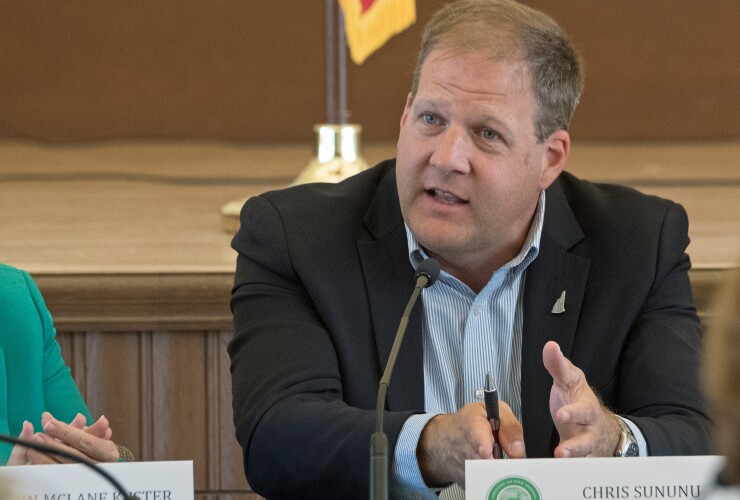New Hampshire Republicans seizing control of both chambers in the state legislature grants GOP Gov. Chris Sununu increased power to enact fiscally conservative policies, analysts said.
Republicans flipped the previously Democratic-held New Hampshire state Senate and House of Representatives and reelected Sununu to a third term on Election Day. The Granite State swing gives the GOP command of the legislative and executive branches of government months before Sununu is tasked with crafting the next two-year budget.

Entering the election, Democrats held a 14-10 majority in the Senate and a 230-157 majority in the House, with 13 seats vacant. Republicans now hold a 14-10 edge in the Senate and a 213-187 advantage in the House.
The election results means Sununu will avoid major resistance passing his goals to temporally lower the state’s business enterprise and meals and rentals tax next year, according to Russell Muirhead, a government professor at Dartmouth College and a newly elected member of the state House as a Democrat, but that will hinge on whether the state receives new federal COVID-19 relief funds to offset a projected $200 million revenue shortfall next year.
“If that shortfall is made up for by assistance from the federal government, then the state will have the latitude to decrease some taxes at least temporarily,” he said. “But if that shortfall isn’t made up for by the federal government, then I don’t think the state will be able to change a thing.”
Negotiations for a federal stimulus package have been stalled, and with the Senate likely to remain in Republican hands, even after Joe Biden takes office it's unclear how generous a stimulus will be allowed.
The press office for Sununu did not immediately respond for comment on plans for the next two-year budget.
Sununu often clashed with Democratic lawmakers on fiscal issues in his first eight years as governor. He
S&P Global Ratings credit analyst Thomas Zemetis said the new makeup of the legislature will put a pause on past efforts to enact revenue raisers from statewide tax increases to balance budgets. New Hampshire revenues are mainly generated from property taxes since the state levies no sales or income tax.
“I don’t think there would be an appetite at this time to consider other revenue raiser options,” he said. “I think the state will certainly focus a lot of its effort on streamlining and working with agencies to find efficiencies and streamlining those functions in order to offset any increased spending for programs that are a little less flexible, like Medicaid or social services.”
S&P revised the credit outlook for AA-rated New Hampshire GO bonds to stable from positive in April citing expectations that the COVID-19 pandemic would weaken state revenues tied to business, meals and rentals taxes.
New Hampshire’s general obligation bonds are rated Aa1 by Moody’s Investors Service, and AA-plus by Fitch Ratings. Both assigned stable outlooks.
Moody's and Fitch did not immediately respond for comment.





